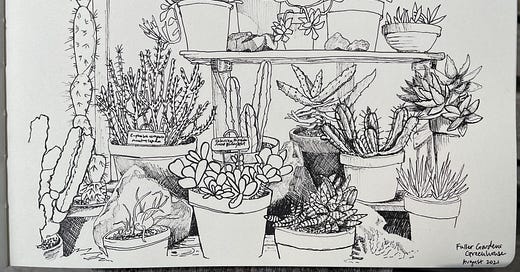More days than not this summer, I sat down in the morning resolved to try and do some computer work. Teaching through the 2020-21 year had been grueling, isolating, and alienating, and by spring I was dissipated and spent. I had gotten better at teaching online, keeping contact with at least some students, trying my best to connect—me to them, and they …
Keep reading with a 7-day free trial
Subscribe to Ephemeroptera to keep reading this post and get 7 days of free access to the full post archives.



